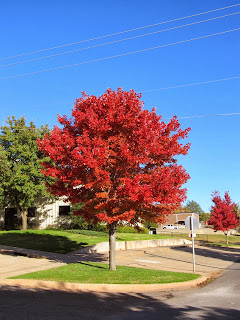G3 - Growing
GROWING: A crone keeps growing emotionally and intellectually. Right now I am spending a lot of time thinking and reading about relationships, both those with people around us and those on the other side of the curtain. I want to understand what makes relationships work. I am also interested in learning about meditation.
Marjorie Kinnan Rawlings's home at Cross Creek
Marjorie and Me: A Relationship
In
April of 1938, The Yearling by Marjorie
Kinnan Rawlings was published, and the next April it won the Pulitzer Prize.
During the fall of 1964, The Yearling
saved my life. I was twenty-two going on fifteen and had just begun to teach
English in a high school said to be the roughest in a city with several. The kids
were only a few years younger than I, and many were far more experienced in
worldly matters.
Armed with the love of literature and
well-founded in English grammar, I marched into that classroom with confidence.
Instructional periods were seventy minutes, and the kids were grouped according
to ability. The longer time was great for the better students, but I had one
bunch with severe disabilities, barely able to read or write. Totally
unprepared for such a group, I panicked. What was I supposed to do with these
kids for so long? Just the year before I had fallen in love with The Yearling, and I began to read it
aloud. I remember how Joe, almost my age, twice my size, and dressed always in
filth, would ask each day as he came in, “You going to read about the bear,
Miss Hoover?” I assured him I would read if he worked hard. For twenty minutes
I attempted to teach the rudiments of the English language. Then guilt-ridden,
I reached for the story. Other novels followed. Mostly I stood at the back of
the classroom as I read, my gaze going often to the door. What would happen if someone
important came in and discovered I was wasting time?
Finally, in January,
I attended a teachers’ meeting where an expert teacher of English said from a
high stage, “Be sure to read aloud to your students, even those in high school.
They need to hear the beauty of language.” I could hardly keep from shouting!
My admiration
for Rawlings changed into what I have somehow come to think of a relationship
last December when I visited Cross Creek, her home in rural Florida. My two
daughters, their children, and I were driving to Disneyworld. The girls watched
the little ones play on swings on the grounds while Paul, who was nine at the
time and who wants to be a writer, and I went inside. We were both enthralled.
Cross Creek
If you don’t
know how Marjorie came to own Cross Creek and how living there led to The Yearling, you should read her autobiographical
account with the same name as her home or at least watch the movie, not totally
true to the story, but close. Hoping the citrus grove would support her writing
habit, Rawlings bought the place, including
a house that had been assembled by connecting three tiny buildings with porches. Built from cypress and pine, the
dwelling is plain, simple, and open for cross ventilation. There is a great
article about Cross Creek in the Florida section of American Author Houses, Museums, Memorials, and Libraries, by my
sister, Shirley Hoover Biggers, published by McFarland. With money from one of her early short story
sales, the new owner had the first indoor bathroom added. She celebrated by
putting ice and soda in the tub, a tray of glasses on the sink, roses in the
stool, and inviting the neighbors in for a “gala social event.” She also
screened in the front porch where she wrote, her typewriter resting on a
roughly made table.
Orange Trees at Cross Creek
After the trip,
I read a book of Marjorie Kinnan Rawlings’s letters and a biography. She loved
company, just as I do. So far none of my writer friends have achieved the fame
of those who slept at one time or another in the narrow handmade bed found in
her guest room. Still, I don’t think she could have enjoyed Margaret Mitchell,
Robert Frost, or even Thornton Wilder more than I enjoy my friends, writers and
others. Maybe I should reconsider that statement because Gregory Peck, who
starred in the movie version of The
Yearling, also visited.
With my grandson, Paul, at Cross Creek.




.jpg)










.JPG)






.JPG)




